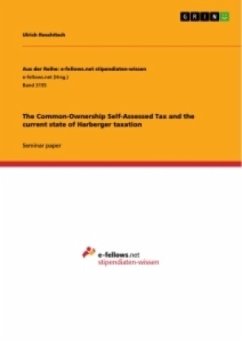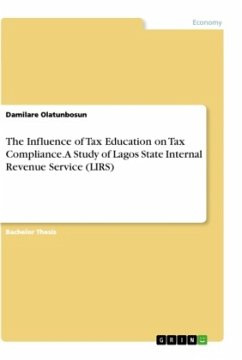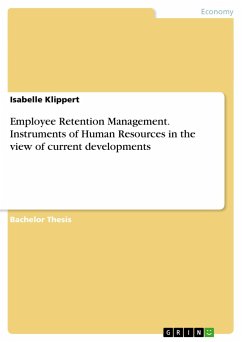Seminar paper from the year 2019 in the subject Business economics - Accounting and Taxes, grade: 1.0, University of Mannheim (Department of Economics), course: New Approaches to Economic and Public Policy, language: English, abstract: This paper aims at providing a concise description of the current state of the discussion around the mechanism of Harberger taxation, and Posner & Weyl's proposal to universally implement it. In a second part, some thoughts on the consequences of a particularly relevant concern are explored: the failure of agents to assess the value of their property. This might lead to the Harberger tax placing potentially rather different effective tax rates on asset owners, depending on their personal characteristics.In their book "Radical markets: Uprooting capitalism and democracy for a just society", based on a series of papers by the authors and affiliates, Eric Posner and Glen Weyl introduce the idea of partial common ownership: every asset in the economy is constantly auctioned through a mechanism that has been existent in a small strand of literature for quite some time-Harberger taxation. The mechanism has been endorsed by some scholars for its combination of simplicity and incentive compatibility (regarding truthful revelation of valuations), enabling the economy to move to a state of higher allocative efficiency. Other scholars have pointed to some practical, but fundamental issues that might cripple a system of universal Harberger taxation (such as failure to assess value).
Hinweis: Dieser Artikel kann nur an eine deutsche Lieferadresse ausgeliefert werden.
Hinweis: Dieser Artikel kann nur an eine deutsche Lieferadresse ausgeliefert werden.








